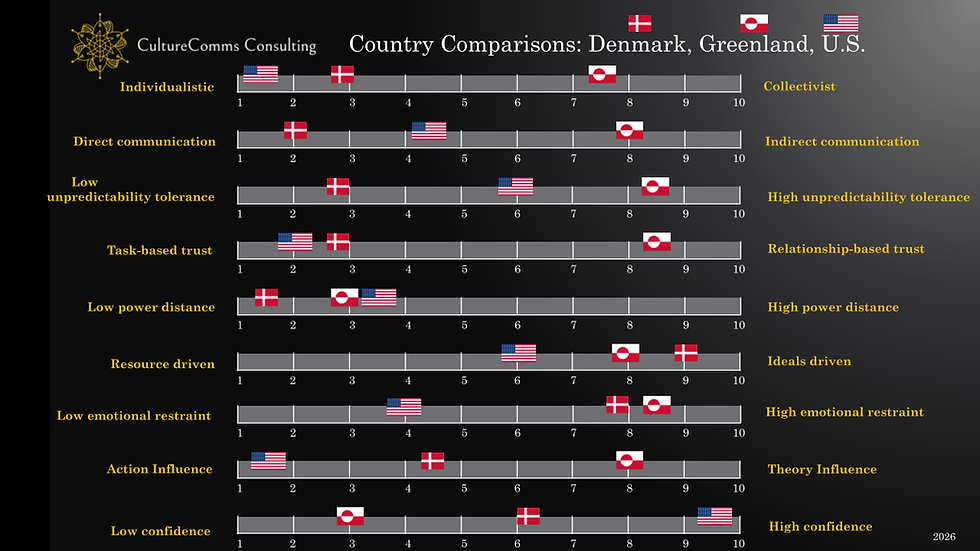7 Tips on How Curiosity and Adaptability Can Transform Your Global Connections
- adamraelson
- Dec 5, 2024
- 3 min read
Updated: Dec 12, 2024
All over the world, our societies are built in many ways—some similar, some very different—all thanks to various geographic, historical, or philosophic reasons, which have contributed to a remarkable cultural diversity among our species.
It's why in my personal life, I have been motivated to travel to over 74 countries (and counting!), live & study in 3, and go for work assignments in countless others. It was no surprise then to my friends and family when I chose global communications in multinational corporations as my career path.

Throughout the years, I have seen many patterns that have evoked wonder, frustration, laughter, or even embarrassment! Sometimes, I’ve had the displeasure of hearing ignorant comments about nations or teams in different countries. Other times, I’ve witnessed situations unfolding before my eyes where I thought to myself, "This is a disastrous intercultural communications case study!" <face palm>
But one thing is for certain—the more you travel, work with other cultures, stay curious, and are flexible enough to adapt, the more you can slowly experience what it feels like to be a culture that is not yours natively. When you adopt that mindset, suddenly culture shocks diminish, stress decreases, frustration occurs less frequently, and prejudices disappear. And that is a beautiful thing.
The good news? This isn’t just about personal growth—it’s a skill that anyone can learn. Here are some practical tips that leaders, teams, and travelers can use to thrive in intercultural interactions:
1. Listen More, Speak Less
Pause and observe before jumping to conclusions or responding. By truly listening, you can pick up subtle nuances in language, tone, and non-verbal communication that might hold cultural significance, which you can incorporate into your behavior. Think of yourself like a chameleon who can change colors in different contexts.
2. Embrace Different Views of Time
While some cultures prioritize punctuality and strict deadlines, others may view time more fluidly. Instead of labeling the opposite behaviors as “wrong,” adjust your expectations based on the cultural norms of the people you’re interacting with.
3. Learn Local Etiquette and Customs
Even small gestures, like greeting the other in their native language or saying "thank you" in their native language, show respect and effort. Do your homework before meetings or travel can go a long way in building rapport.

4. Look at a map!
You'd be surprised how many people have colleagues or teams in other countries and wouldn't be able to find their cities (or sadly even countries) on a map. Look up the locations where your colleagues live, check out some pictures or YouTube videos, and you'll have a deeper understanding of your colleagues' daily lives outside of work.
5. Ask Open-Ended Questions
Instead of making assumptions, ask questions like, “How do you usually approach this?” This not only fosters understanding but also demonstrates your interest in their perspective.
6. Build Relationships Before Jumping Into Business
In task-oriented cultures, diving into work immediately may be fine to build trust, but in relationship-oriented cultures, trust is built by first not talking about work. Invest in small talk, shared meals, or other bonding activities to lay the foundation for successful collaboration.
7. Remember, people are people
After each intercultural interaction, take a moment to reflect: Did you approach it with an open mind? While most people may not have had formal training in intercultural competency or experience with individuals from vastly different backgrounds, everyone still has a unique individual personality. Cultural upbringing shapes perspectives, but each person is also influenced by their own experiences and personality. Recognizing this balance helps foster more authentic connections.

By learning and applying these strategies, it becomes easier to work, connect, and successfully interact with people from all over the world.
Maybe not all our governments can make peace in the world right now, but we can. You and me.




Comments